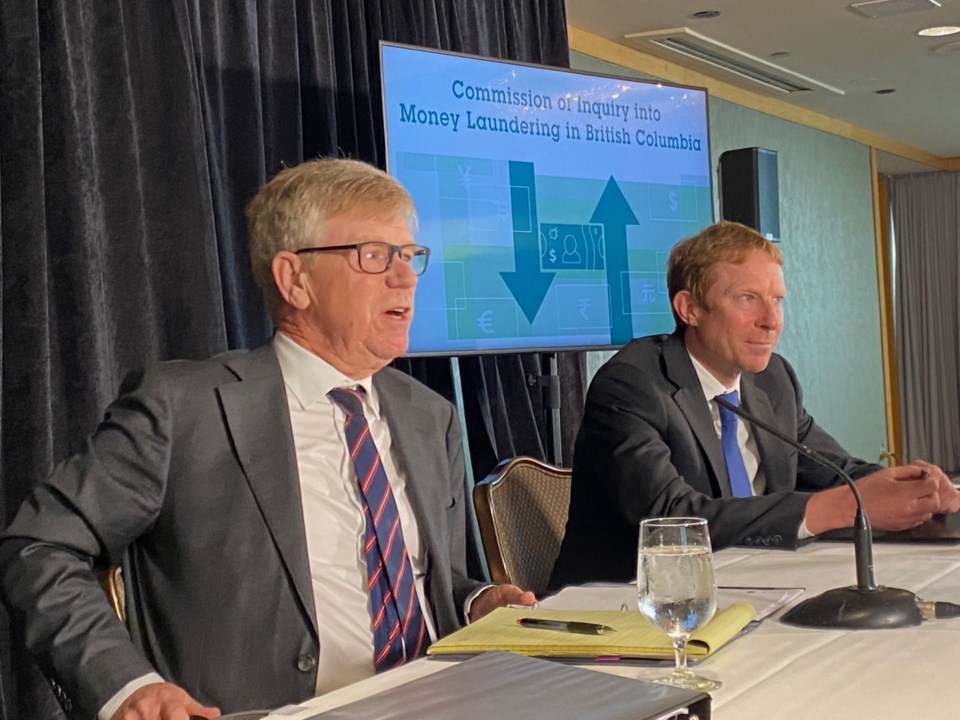The amount of money laundering taking place in British Columbia is “enormous” and requires better regulations — but there's no clear indication it's a root cause of housing unaffordability nor is there evidence of corruption among politicians and bureaucrats who oversaw problematic casino transactions.
This is the broad conclusion of Commissioner Austin Cullen of the Commission of Inquiry into Money Laundering in B.C. in an 1,831-page report tabled to the public June 15, following a two-year public inquiry.
The inquiry was largely spurred by evidence of drug money flowing through B.C.-regulated casinos that provided a significant revenue stream to the provincial government.
B.C. Government regulators and the B.C. Lottery Corporation and law enforcement “were aware of the burgeoning money laundering crisis but failed to intervene effectively,” concluded Cullen.
Elected officials were aware of suspicious funds entering the gaming industry but there is no evidence of corruption, he said.
Former Premier Christy Clark was aware but “failed to ensure such funds were not accepted.”
Despite all their failures “there is no basis to conclude that any engaged in any form of corruption related to the gaming industry or the Commission’s mandate more generally,” stated Cullen in his report.
“There is no evidence that any of these individuals knowingly encouraged, facilitated or permitted money laundering to occur in order to obtain personal benefit or advantage, be it financial, political or otherwise.
“To the extent that some have hypothesized that money laundering in casinos was facilitated by corrupt politicians or officials, they are engaging in conjecture that is not rooted in evidence.”
Cullen examined the so-called “Vancouver Model” whereby drug cash and criminal proceeds are converted into real estate via overseas networks.
While money laundering can broadly be considered a factor in real estate prices, Cullen notes several other significant factors, including supply and demand and monetary policy, contributing to an overheated market.
“I am unable to conclude that money laundering is a significant cause of housing unaffordability in the residential real estate market,” said Cullen.
It is “overly simplistic and unfounded” that “criminal money from China” has flown freely into the province’s real estate market, stated Cullen.
But, the real estate sector is “highly vulnerable” to money laundering, the report noted.
Cullen could not quantify the amount of money laundering in B.C. or any one sector.
He found problems with regulators, a key component of his recommendations.
Canada’s financial intelligence unit, the Financial Transactions and Reports Analysis Centre (FINTRAC), does not produce enough intelligence reports for police, Cullen found. He recommends B.C. create a dedicated provincial money laundering intelligence and investigation unit.
A new anti-money laundering (AML) commissioner would provide oversight of the provincial response and report to the legislature.
Cullen supports unexplained wealth orders and civil forfeiture in cases that are not tried criminally.
Money service businesses, which transfer and exchange currency, are risky and require regulatory oversight in B.C., he said.
A well-enforced, publicly accessible corporate beneficial ownership registry is essential, said Cullen.
Cullen defended lawyers. He said while there are significant risks to trust accounts, the Law Society of BC is providing effective mitigation and a reporting regime for lawyers “poses significant constitutional challenges and should not be pursued.”
Realtors have a poor record of AML reporting and compliance. In 2015-16, real estate licensees in B.C. submitted only seven suspicious transaction reports to FINTRAC, noted Cullen, who wants the sector to revamp oversight.
The report also touched on larger money laundering vulnerabilities, including cryptocurrencies and trade-based money laundering.
However the report was provincially mandated and not an examination of federal regulations.




